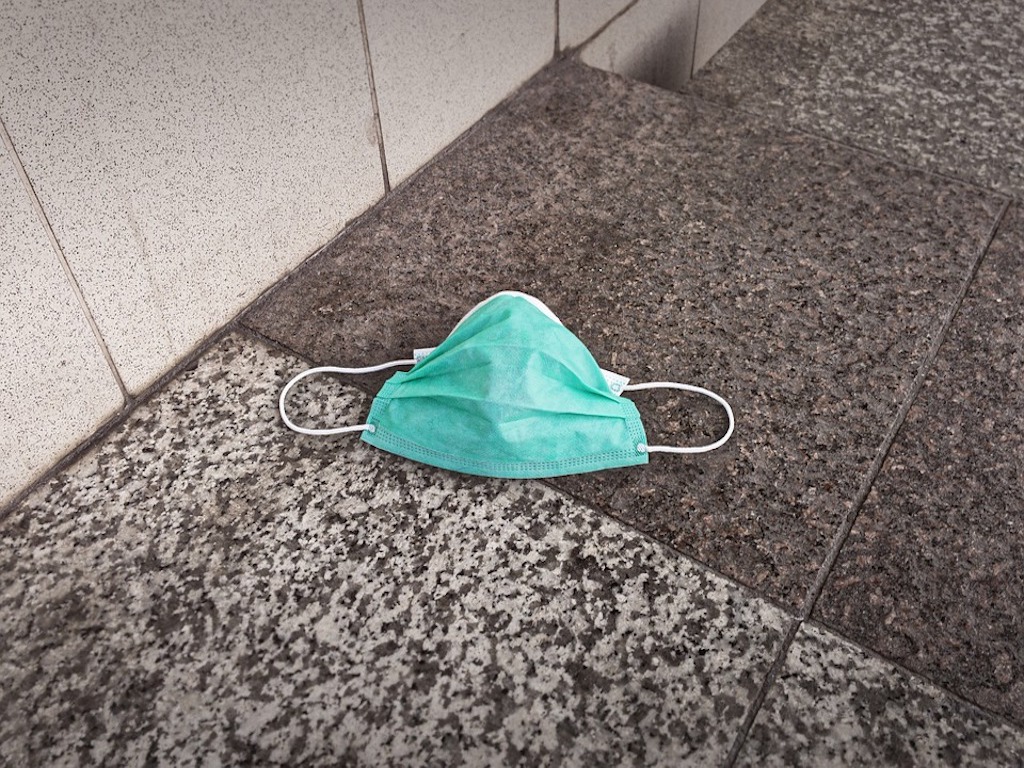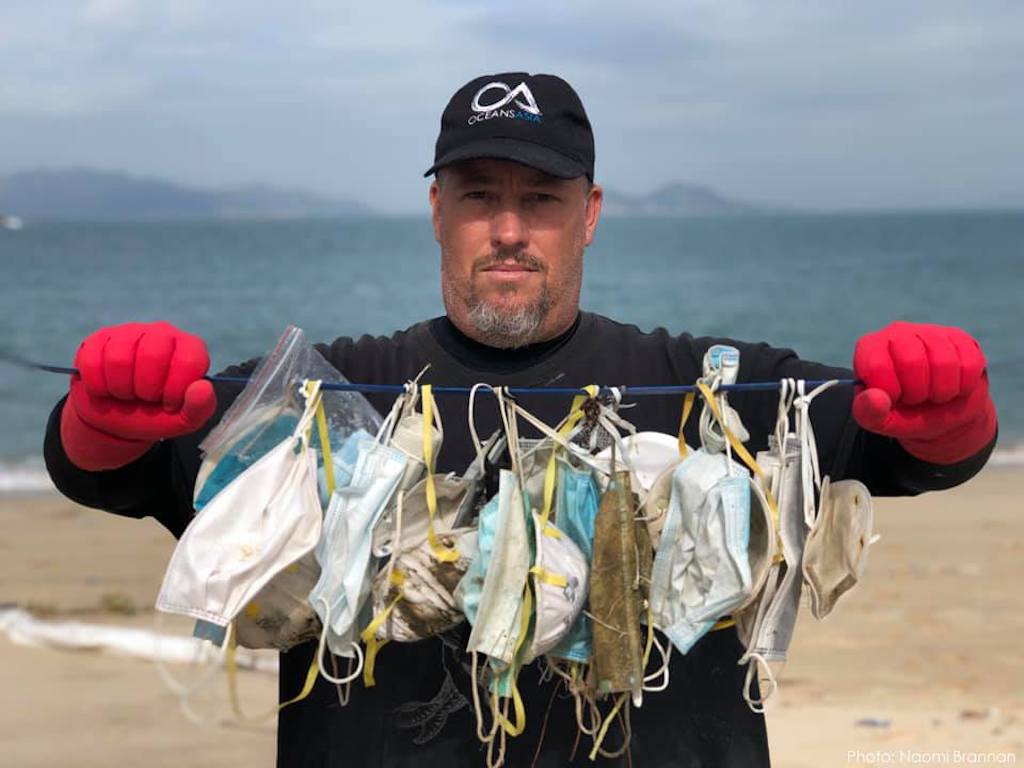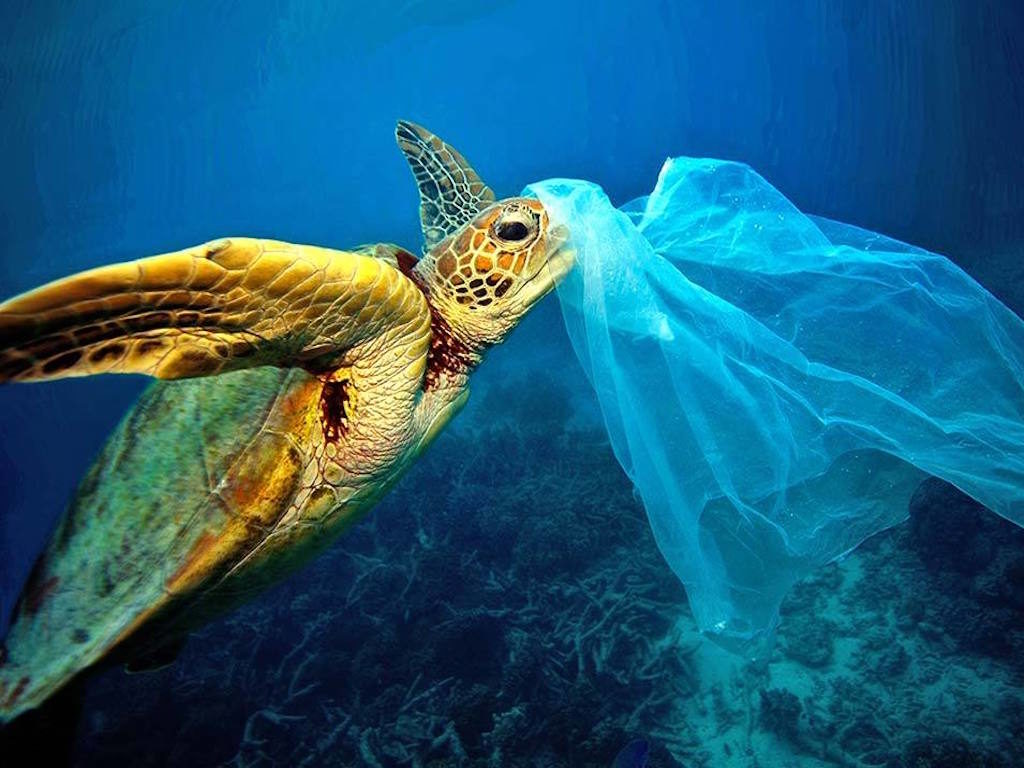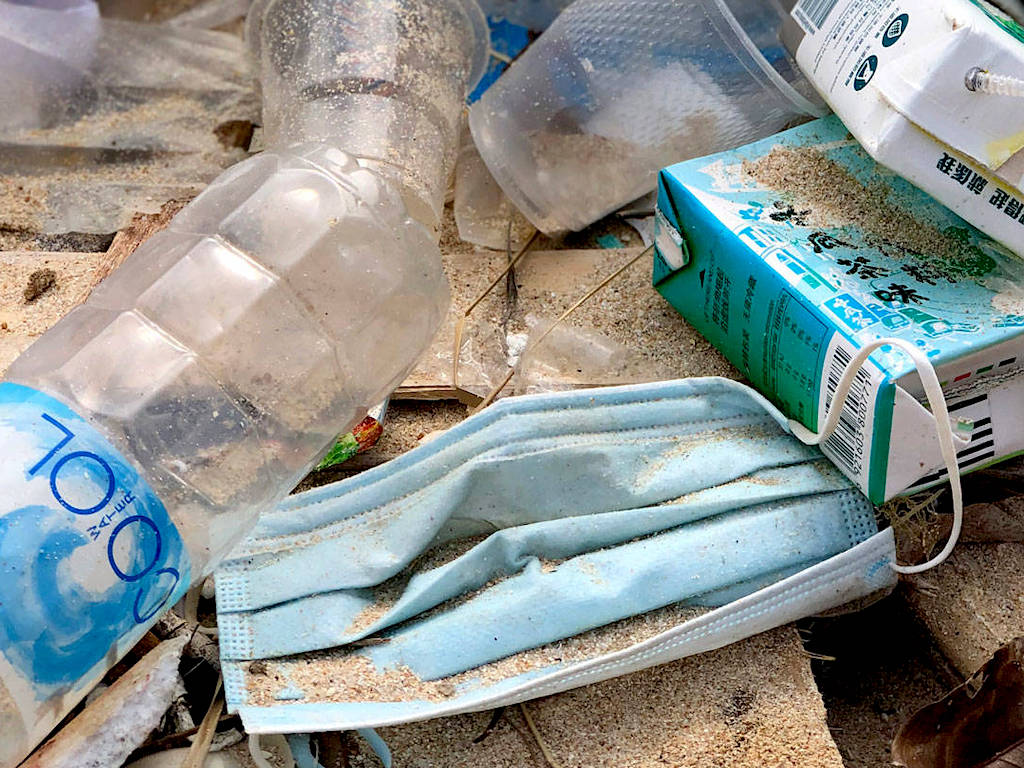6 Mins Read
In late February, Hong Kong-based environmental NGO OceansAsia revealed the devastation left behind by littered disposable face masks. A few months on, we catch up with Gary Stokes, the founder and director of the organisation, about the plastic pollution crisis that the coronavirus pandemic has exacerbated and what we ought to do about it.
Nearly half a year into their study of marine debris and microplastics at their research site on Soko Islands, southwest of Hong Kong’s Lantau island, researchers from OceansAsia found the 100-metre-long beach scattered with disposable face masks.
Images of the pollution left behind by surgical face masks, sometimes entangled in algae and other plastic packaging, quickly went viral online. It was only several weeks after people in Hong Kong started regularly wearing face masks to protect themselves from the virus. Questions started to arise – where did these face masks come from exactly, and are there potentially millions of masks littering the environment that have yet to be discovered?
The crisis is still evolving, but scientists across the world now agree that face masks are a crucial defence to stem the spread of the virus. Countries that adopted the regular wearing of masks early on in the pandemic, many of them in Asia, tend to have far lower rates and numbers of infection.
So as the coronavirus lingers, which experts believe it will for the long-term until a viable vaccine is found, it becomes increasingly important to look at what the environmental impacts of masks are.

‘The issue is disposable masks’
Speaking to Green Queen, Stokes said that disposable surgical masks weren’t a problem in terms of marine litter and plastic pollution until the pandemic hit.
“When you think about it, the medical industry has been using disposable surgical face masks for decades, and there wasn’t a problem because they have a dedicated disposal procedure,” said Stokes.
“It wasn’t even a big problem when the general population in Hong Kong and Asia began to use disposable face masks in the aftermath of SARS, because people only wore them when they felt sick. It was when coronavirus hit, when we saw a mass switch with everyone wearing disposable masks every single day, that led to them ending up on trails, washed up on beaches and lying on the streets.”
When asked about potential solutions, Stokes says that now that the virus appears to be largely under control in Hong Kong – with no local cases of transmission recorded for the past 14 days – the public should begin switching to using reusable face masks, while disposable surgical masks should be kept for healthcare workers and high-risk groups that are more vulnerable to infection.

“At the beginning, there had been a panic. Now there are many companies making reusable masks and the government is also handing reusable masks out – it is possible to now phase out single-use ones for the general population, and many people are beginning to make the gradual switch,” said Stokes.
Local environmental group Greeners Action came to a similar conclusion. In a recent interview with RTHK, the organisation’s executive director Angus Ho described the estimated 10 to 15 tonnes of waste created daily from the use of single-use masks as “alarming” and that the general population should consider using reusable types of masks outside of medical settings.
‘It’s down to our negligence’
Stokes also believes that there needs to be firmer pressure on those responsible for littering. Recalling the number of face masks swept up on OceansAsia’s research site in late February, he said that the quantities that the masks were washed ashore suggested it was mass littered.
“At the time, we had strong easterly winds,” explained Stokes. “It would suggest that [the masks] were coming from the direction of Shek Kwu Chau or Cheung Chau island.”

“There is a massive construction site going on at Shek Kwu Chau. Loads of debris is being thrown into the water, and I can’t say for sure, but if I had to pinpoint, I’d say it’s down to the negligence of the workers and managers of that construction site”.
Apart from switching to reusables to phase out the single-use versions, it suggests that stricter measures need to be put in place to manage the disposal of existing masks – not just to curb plastic pollution, but to limit its negative impact on wildlife.
Mistaken for food
Like other forms of marine debris and plastic pollution, surgical face masks can be mistaken for food.
“Dolphins, porpoises and turtles can mistake them for food, consume them and it gets stuck in their digestive tract,” explained Stokes.
This has long been documented by marine biologists and scientists over the years. Chemicals used in the manufacturing of plastics, such as phthalates and flame retardants, have been found in fish, mollusks and sea mammals. In one study, scientists found traces of plastic pollution in the organs and bodies of 100% of marine turtles, 59% of whales and 40% of seabirds sampled.
After being in the ocean for prolonged periods, the plastic content that are in face masks break down into microplastics – and it can potentially end up back into our human bodies via the food that we eat.

“They will be transferred through marine life, through the food chain to human beings,” Ho told RTHK.
This could already be happening. In their latest sampling of products on Hong Kong retail shelves, the city’s consumer watchdog found traces of microplastics in samples of sea salt for the first time. Four brands were detected to contain microplastic content from 114 micrograms per kilogram to as high as 17,200 micrograms per kilogram.
The chairwoman of the watchdog’s research and testing committee, Professor Nora Tam, said that the presence of microplastics in sea salt confirms the severity of marine plastic pollution caused by humans, and urged people to reduce plastic consumption in all areas of life as much as possible.
Stokes echoed the call for the elimination of all single-use plastic items, not just face masks: “Let’s not forget the bigger story. Masks are just one of the many items we’re leaving behind to pollute the environment, but it’s just very relevant and current right now. The masks should serve as a massive wake up call for a bigger step up in our anti-plastic efforts across the board.”
Lead image courtesy of Naomi Brennan / OceansAsia.




